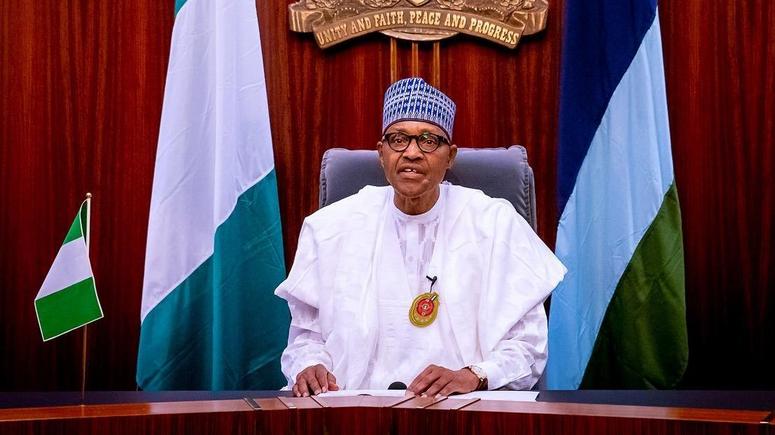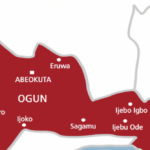On Tuesday, 16th March 2021, President Muhammadu Buhari virtually flagged off the Port-Harcourt- Maiduguri reconstruction and rehabilitation of the Nigeria Railway narrow gauge project as part of the nationwide rehabilitation of transport infrastructure at the cost of $3.02 billion dollars. The project, which is to be completed in 33 months, also involves the reconstruction of the Bonny Deep Sea Port, the Railway Industrial Park and the construction of a spar to Damaturu and Gashua in Yobe State.
President Buhari assured the nation that the connection of the railway to a new seaport in Bonny Island and railway industrial park in Port-Harcourt is designed to increase the viability and transhipment of cargo and freight locally across the West-African sub-region and in the Continental Free Trade Area.
- Experts warn of anarchy as IPOB locks down South-East
- Abductors of Jangebe schoolgirls behind Tegina students’ kidnap
The president added that there will be further utilisation of local content and technology transfer, increase in Internally Generated Revenue (IGR) and will serve as a fulcrum of Integrated Development Master Plan (IDMP) of the railways.
While the president is optimistic about achieving the above objectives, the rehabilitation of the narrow gauge railway ran counter to the 25-year development plan produced in 2000 by the Federal Ministry of Transport to guide the future development of the Nigerian railways. The plan had recommended a complete shift from narrow gauge to standard gauge rail-line in tune with International Best Practices.
The master plan had recommended that any building of a narrow gauge was over. The plan made it clear that no country builds narrow rail gauge lines nowadays, not even China or India. The plan said no one manufactures new locomotive engines for narrow gauge unless on special order, which makes it more expensive and the spare parts for the engines more scarce and more expensive. As far as the plan is concerned, narrow-gauge rail lines are considered archaic and outdated all over the world.
Experts, therefore, fault the Ministry of Transportation for unilaterally imposing the narrow gauge without due consideration for the need for a modern railway system. They liken the policy of the introduction to the analogue telephone system into the digital mobile tracks system. In fact, the standard gauge is not only faster and cheaper but more reliable with a minimum accident.
Furthermore, spare parts for the narrow gauge system in the stores nationwide had long ago been sold as scrap, thereby jeopardising the possibility of the rehabilitation of the existing locomotives and rolling stocks.
The Nigeria railway, as a whole, has seen its assets being pillaged like in no other time. From 1997 to date, the railway lost almost all the 50 Chinese locomotive engines and the five German locomotives that were bought during the Abacha era. Foundries, mechanical workshops and railway stocks worth billions of naira have disappeared into thin air without anyone being held to account for these unprecedented thefts. It is common knowledge that the situation in the railway has become so pathetic that even the railway tracks are being stolen.
A recent investigation by the Daily Trust Newspapers paints a picture of not only dilapidation but total lack of leadership in managing the railway assets across the country. The contracts that were awarded between 2010 – 2015 that are worth over N60 billion, some of which were paid for upfront to rehabilitate and reconstruct the same Port Harcourt-Maiduguri rail line, remain undone and no one and no companies are being asked to refund the money paid for the work not done.
The rail line between Port Harcourt and Kuru in Plateau State, which was built between 1920–1930, and Kuru – Maiduguri 1958 – 1963 had all outlived their usefulness.
Experts believe the decision to expend $3.02 billion to rehabilitate and reconstruct the Port Harcourt – Maiduguri narrow gauge rail line will be economically unviable.
Decisions that are taken that affect the Nigerian Railways without due consultations with the management of the corporation and its Board of Directors can only deliver failure.
To compound the accountability problem of the railways’ progress, the powers of the management/board had been usurped by the ministry without due consideration to the ethics of rail transportation that had been in the custody of the NRC trained staff and stock and experienced retirees of the cooperation.
The federal government’s financial commitment on a loan to this important project does not raise the hope of standardising NRC at par with the expectation of a modern railway system nor will it enable it to cater to the ever-increasing need for a viable alternative to a road transport system that is ever increasingly becoming too expensive and chaotic.
The silence of the National Assembly on this troubling reconstruction is not only disturbing but shows a lack of understanding and concern by those who have the oversight function to make Nigeria great once again.
The railway is too important to be left in the hands of usurpers in the ministry who have no understanding or capacity to midwife it to the modern era.
It is time to stop this contract and review it in its entirety so that no money is wasted for a project that is doomed to failure.
By Adamu Lawal Toro. Toro is of No. 5 Lord Lugard Street, Asokoro, Abuja.

 Join Daily Trust WhatsApp Community For Quick Access To News and Happenings Around You.
Join Daily Trust WhatsApp Community For Quick Access To News and Happenings Around You.


